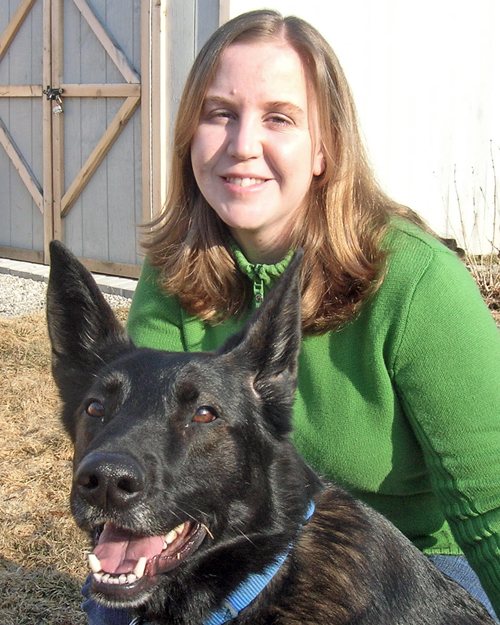
The number one reason that dog owners decide to relinquish their pets? Aggressive behaviours. The number one behaviour problem that results in dog owners deciding to euthanize or relinquish their pet? Aggression.
“It’s understandable,” says Prof. Lee Niel, who has recently joined the Department of Population Medicine. “People don’t want a dog that might be dangerous, especially if they have children. That’s why I think this is an important area to study.”
Finding out why some dogs become aggressive and others don’t is the first step to finding solutions. Niel says that previous research suggests genetic and environmental factors interact to cause aggression in dogs, and she hopes to clarify these interactions in the research she does as a new appointee to the Colonel Campbell Chair in Companion Animal Welfare.
“If we can understand the causes, we may be able to reduce the risks of dogs being aggressive, both by careful breeding and by how we interact with them,” she explains.
The other area of research Niel plans to focus on at U of G is assessing and mitigating pain and stress in dogs and cats, both at home and in a veterinary clinic.
She admits her experience with her own animals ─ she has two dogs, Dukie and Sara ─ has shaped her research. “When you have animals, you want to make sure their care is the best it can be.” She recalls being faced with tough decisions about how to manage pain and determine when the pain is too much when her cat became sick and eventually died a few years ago. “These are hard issues.”
For Niel, stretching her compassion for her own companion animals to concern for all animals has happened quite naturally. She was attracted to the field of animal welfare as an undergraduate biology student at Simon Fraser University. “My focus was animal physiology, and I did a number of summer research programs. I was excited about doing research, but I saw many opportunities for improving the care of research animals. For my graduate work I wanted to find a way to marry my love of research with my desire to help animals.”
With that experience in mind, Niel decided to do her PhD research at the University of British Columbia on pain and distress in lab animals and, in particular, whether euthanasia methods could be improved to cause less suffering. She also looked at post-operative pain and ways of assessing it in rodents.
Her post-doctoral work at the University of Toronto gave her more advanced skills in behavioural neuroscience as she studied changes in the behaviour and brains of mice related to social status and aggression.
“Previous research has shown that subordinate mice behave differently than dominant animals and that their brains respond differently to social encounters,” Niel explains. “However, it is not clear whether these effects are due to social status itself or the aggression that results when animals are placed in unstable groupings. We have been examining stable groups of mice, which show variability in the level of aggression that they direct towards each other. By carefully observing the behaviours of the mice, we are trying to disentangle the effects of aggression from social status to see how each affects the brain.” Understanding these differences is helpful in identifying how social stress impacts subordinate animals, she says.
While Niel appreciates what she learned during her research in Toronto, she’s enthusiastic about the opportunities offered by her new position at Guelph. “The largest concentration of researchers in animal welfare in North America is at the University of Guelph,” she says. “Being able to collaborate with others in this field is very exciting. I’m also eager to work with vet students because they are the real front line, the people who are going out and making changes in how animals are treated and cared for.”
Niel will be teaching a course in companion animal behaviour in the winter term and will be developing graduate-level courses; she will also be a behaviour and animal welfare resource person for the Ontario Veterinary College Primary Health Care facility.
At home, she is kept busy by her eight-month-old daughter, Sadie, who is “crawling around and discovering everything.” Niel also loves to hike, garden and take Dukie and Sara for long walks.